Local Farms, Local Food: Part 5
May 11th, 2018
By Guest Contributors
Upstate Forever's work preserving farmland helps prevent urban sprawl, boosts community health, and contributes to a thriving regional food community.
For our Spring Issue of the Upstate Advocate, we reached out to local farmers, restaurateurs, retailers, and other stakeholders asking them what a thriving local food scene means to them.
Here, in the words of some of the people who know best, are a few reasons why Upstate Forever is working so hard to protect our region's vanishing farmlands. Part 5 of this blog series features thoughts from Hub City Co-op, Kaland Farms, and Old Paths Farm.
Hub City Co-op
What is your organization, and how do you see your role in the Upstate's local food community?
We are South Carolina's first and only grocery cooperative. We try to source as much local product through farmers and vendors as possible. We are a source of a considerable selection of local, organic, non-GMO and all-natural products, much of which cannot be found at any other retailer in the upstate. In addition, we are an active partner with the community through daily food bank donations and charitable sponsorships.
Why does having a thriving local food/farm scene matter to the Upstate?
Better quality and fresher food. Also, we are helping to support local businesses which in turn has a positive impact on the local economy.
Why does it matter to you personally?
1. Helping others always feels good. 2. The ability to offer the community products and services where traditionally there has been a void. 3. I have kids and want them to not only eat healthy but grow up to have a sense of community, collaboration, and helping others.
In your opinion, what is the biggest benefit to buying/consuming local food?
There are really two: 1. Helping local businesses survive and grow in the age of online consumerism and 2. The quality of the food - particularly fresh items that don't have to travel cross country (or from another country) before they get to us.
What is your vision for the future of local food/farms in the Upstate?
I am optimistic. As mentioned before, I am always trying to source products locally. People will always need to eat and as the general public's food knowledge grows, we will see more and more preference for better, fresher, more healthy products.
—Tony Foley | Hub City Co-Op, Spartanburg | hubcity.coop
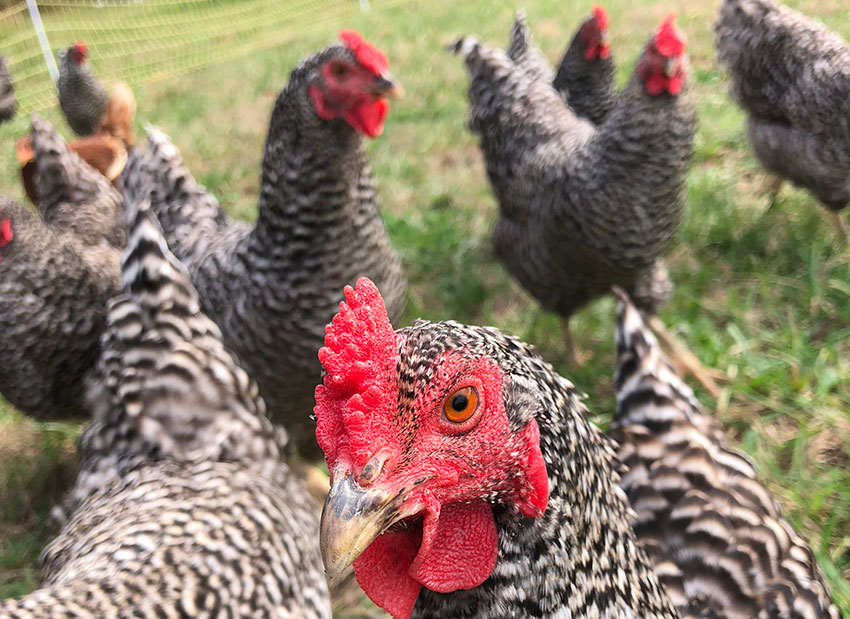
Kaland Farms
Kaland Farms
What is your organization, and how do you see your role in the Upstate's local food community?
We own Kaland Farms which is a local farm with Chicken, Turkey, Vegetables, Eggs, and Honey. We feel that we have a very important role in the Upstate’s food community by being a part of a great group of local farms that are providing good quality food to the Upstate. Our role is to grow the plants and animals in a way that is natural, humane, and real.
Why does having a thriving local food/farm scene matter to the Upstate?
The food/farm scene that is developing across the Upstate is phenomenal! I think people are really starting to want to know where there food comes from, and they are understanding that quality is better than quantity. The food/farm scene is a mutually beneficial relationship. The customer often times gets to know exactly what farm the piece of food they have has come from, and shake the hand of the farmer that raised or grew that product. The farmer gets to share their passion with a thankful customer, and thank them for supporting us.
Why does it matter to you personally?
Knowing exactly who grew my food is the reason farm-to-table is so important to me. As a farmer, I know what it takes bring the baby chick home from the post office one day, and months later hand over a finished product to a customer. I know all of the early mornings, late nights, extra hours it took to make that bird have an incredible life full of sunshine and grass and bugs, that birds from the grocery store do not get to have. I’ve seen other farmers do the same with many other animals and plants, which means being able to meet and understand the person behind the food, makes it that much more enjoyable.
In your opinion, what is the biggest benefit to buying/consuming local food?
The biggest benefit to local food is the amount of care that is put into the food. Its not just a bottom line, another dollar, a margin to meet. We as local farmers really care about the Upstate, we care about our consumers, we care about our animals and our plants, and we want the best for all. Buying local means that the piece of steak you will eat for dinner has come with a farmer who created a relationship with that cow and saw it on a daily basis. The squash as a side to your steak was hand picked, hand washed, and hand delivered to you by a farmer who cares about their community. Big companies that mass produce product cannot say the same, which sets local food on a different level.
What is your vision for the future of local food/farms in the Upstate?
It sounds cliché, but the possibilities are endless when it comes to a vision of the future of local food. I try not to get ahead of myself and look too far down the road. Farm Fresh Fast, GB&D, Adam’s Mobile Market, Swamp Rabbit Cafe, and so many more are all really bringing this movement to stride and playing a huge role. We're excited for where this movement is going to take us, and just excited to be along for the ride!
— Josh Cooke | Kaland Farms, Easley | kalandfarms.com
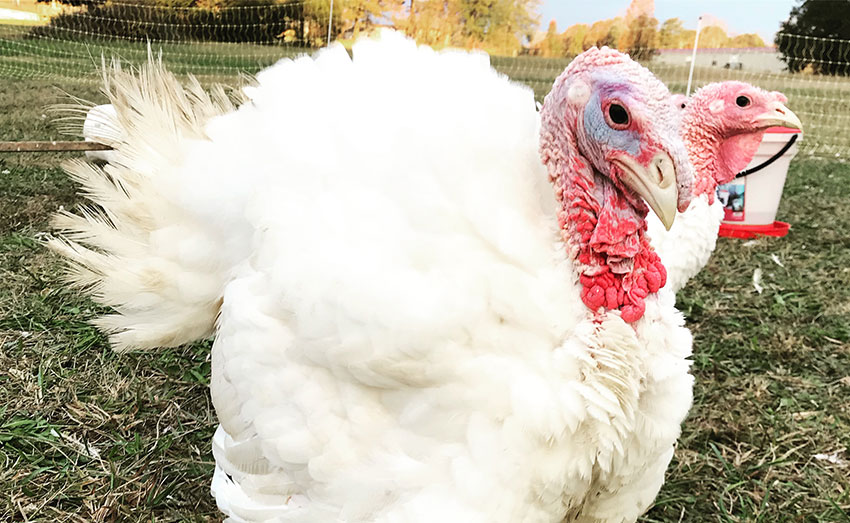
Kaland Farms
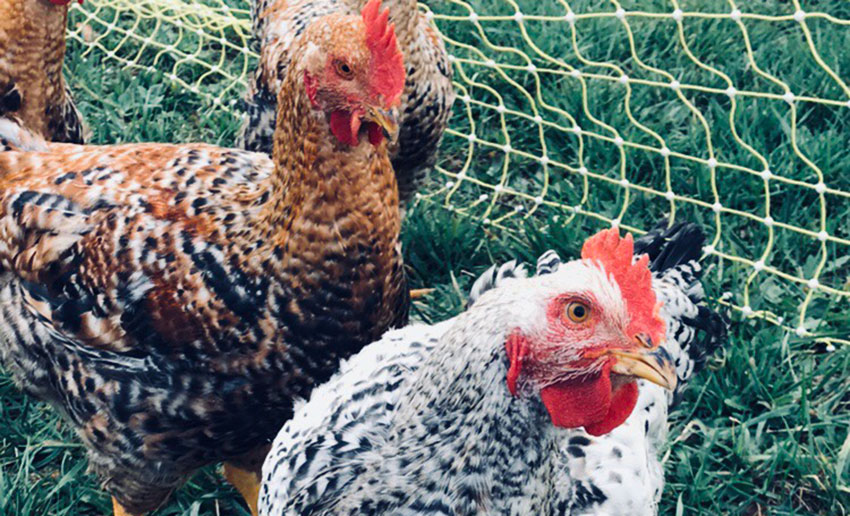
Kaland Farms
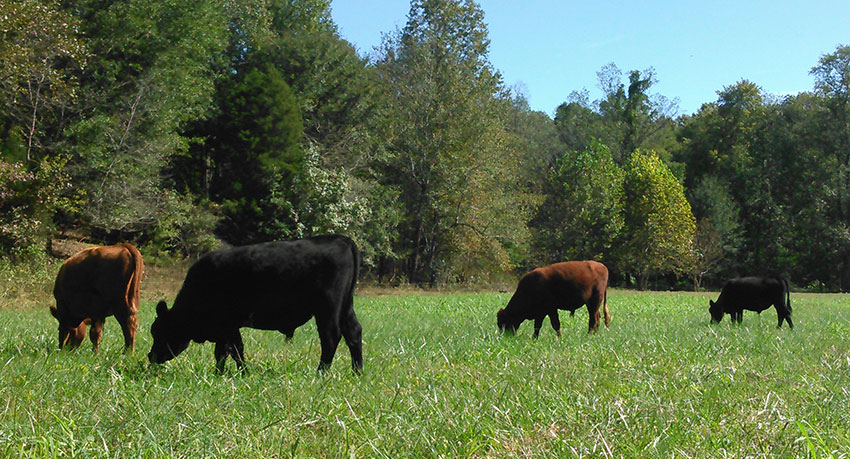
Old Paths Farm
Old Paths Farm
What is your organization, and how do you see your role in the Upstate's local food community?
Old Paths Farm is a three-generations family farm in Gaffney. We are in our 21st year of producing all-natural grass-fed beef, pastured pork and fresh eggs. We view good food as both business and ministry. Delicious, healthy local food raised responsibly and sold to our neighbors at a fair price is our goal.
Why does having a thriving local food/farm scene matter to the Upstate?
Ideally, we all should source as much of our food as possible from the communities in which we live. The benefits include better nutrition, reduced environmental impact, and relationship building.
Why does it matter to you personally?
God saved us, and gave us stewardship of all His creation. We simply want to do the best we can with what we’ve been given, to His glory, and to the strengthening of the community in which we live.
In your opinion, what is the biggest benefit to buying/consuming local food?
Buying local offers so many advantages over participation in the industrialized agriculture paradigm that drives our food economy. Perhaps the greatest benefit of buying and consuming food locally is knowing who raised your food and ensuring that it was raised responsibly and lovingly.
What is your vision for the future of local food/farms in the Upstate?
I long for the day when communities are producing 90% of their food staples, relying on broader systems of food production only for regional/exotic foods that can’t be grown here in the Upstate.
Travis M. Childers | Old Paths Farm, Gaffney | oldpathsfarm.com
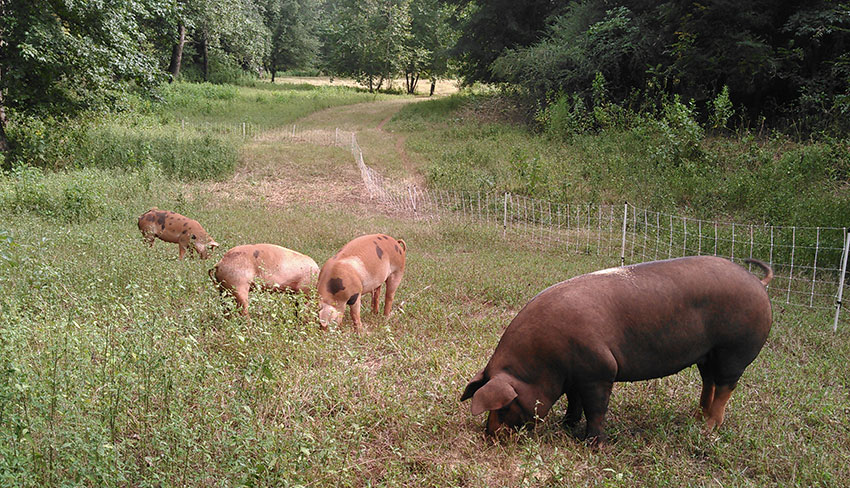
Old Paths Farm
View more posts in this blog series at upstateforever.org/local-food. If you didn’t get a chance to respond, and would like to, please contact sboman@upstateforever.org. Participants’ views do not necessarily reflect the views of Upstate Forever.

